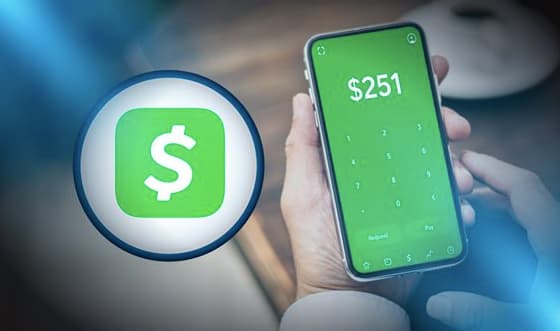As we navigate through the constantly advancing digital era, mobile-focused payment services have become indispensable components of our everyday life.
Prominent among these is Cash App, a peer-to-peer financial solution engineered by Square Inc., which has made its mark through its intuitive design and multi-functional attributes.
This innovative application empowers you to effortlessly transfer, receive, and retain funds, providing an unparalleled convenience of handling your financial matters with a simple tap on your device.
While using this platform, you might have encountered the term “Cash App Bins.” But what does it mean, and why is it important?
The term “Bins” refers to Bank Identification Numbers, which are the first four to six numbers on a credit or debit card used to identify the issuing bank.
With Cash App, these BINs are associated with the Cash Card, a customizable debit card linked directly to your Cash App account balance.
These Cash App Bin identify Square Inc., the parent company of Cash App, as the issuing institution, ensuring the transactions are routed correctly for processing.
Understanding Cash App Bins is crucial as they play a vital role in the financial industry, particularly in fraud prevention and transaction routing.
They help maintain the security and integrity of the financial transactions happening via the app.
However, it’s equally important to remember the potential misuse of this information, emphasizing the need to safeguard your financial details diligently.
As we delve into the world of Cash App Bins, it is important to remember that knowledge should be utilized responsibly and ethically.
Cash App Bins

In our digital age, the notion of money has transformed dramatically, now existing in diverse electronic forms. Among the various methods of managing and transferring funds, mobile-based payment systems have risen to the forefront.
One of the foremost media in this space is the Cash App, a peer-to-peer payment service created by Square Inc.
Understanding how the Cash App functions are relatively straightforward, but there’s an underlying concept — Cash App Bins — that requires further clarification.
This article aims to demystify this term and explain its significance in the digital cash world.
Understanding the Cash App
Before we delve into Cash App Bins, let’s first understand the Cash App itself. Launched in 2013 by Square Inc., Cash App was designed to facilitate quick and easy money transfers.
The application is unrestricted for both iOS and Android media, allowing users to send, receive, and store money in their Cash App accounts.
One can link a bank account or a credit/debit card to a Cash App account, easing the process of transferring funds or making payments.
Bank Identification Number (BIN) – A Brief Overview
To understand Cash App Bins, we need to learn about Bank Identification Numbers (BINs).
A BIN is the first four to six numbers on a credit or debit card, and it is used to identify the issuing bank of the card.
These numbers play a crucial role in the financial industry as they’re involved in the verification process of electronic transactions.
They help prevent fraudulent activities by ensuring the correct bank is connected to the correct transaction.
Cash App Bins: What are They?
Having understood the concept of BINs, we can now turn our attention to Cash App Bins.
Essentially, a Cash App BIN is the set of identification numbers linked to a Cash App card — a customizable debit card known as the “Cash Card,” which can be ordered for free within the app and is linked directly to a user’s Cash App account balance.
When you make a transaction using your Cash Card, the transaction is processed using the BIN, which identifies Square Inc. (the company that owns Cash App) as the issuing institution.
This allows the transaction to be appropriately routed and processed.
Why Cash App Bins Important?
Cash App Bins play a significant role in the smooth functioning of digital transactions for a couple of reasons:
- Fraud Prevention: Just like with any BIN, Cash App Bin help prevent fraudulent activities. They ensure the card is legitimate and matches the records of the issuing organization (Square Inc.). This way, if a dishonest transaction is noticed, it can be outlined back to the source.
- Transaction Routing: Cash App Bins also assist in routing the transaction to the correct place. When a transaction is made, the BIN routes it to Square Inc. for approval. If the BIN wasn’t there, the transaction could end up at the wrong bank, causing delays or rejection of the transaction.
- Misuse of Cash App Bins: A Word of Caution, While understanding Cash App Bins is essential, it’s equally crucial to be aware of their potential misuse. Some people may attempt to use BINs for fraudulent activities, such as creating fake cards or making unauthorized transactions. It’s important to understand that such activities are illegal and punishable by law. Always make sure to keep your Cash App card information secure and report any suspicious activities on your account to Square Inc. and your local law enforcement agency. Also, never share your Cash App BIN with unknown entities or individuals.
Also Check: Cash App Instant Fee Calculator
Conclusion:
In a rapidly developing digital world, mobile-based payment systems like Cash App have become essential to our day-to-day transactions.
Cash App Bins, as part of this system, play a crucial role in ensuring the smooth processing of these transactions, highlighting their importance in the secure management and transfer of digital cash.
As we continue to use and rely on digital payment systems, understanding concepts like Cash App Bins becomes increasingly important.
They not only facilitate the seamless execution of digital transactions but also bolster our understanding of the complex mechanisms underpinning our digital economy.
Always remember, with great convenience comes a great responsibility — maintaining the security of our financial details.
Let’s continue to leverage these technological advances while prioritizing security and integrity in our digital transactions.
